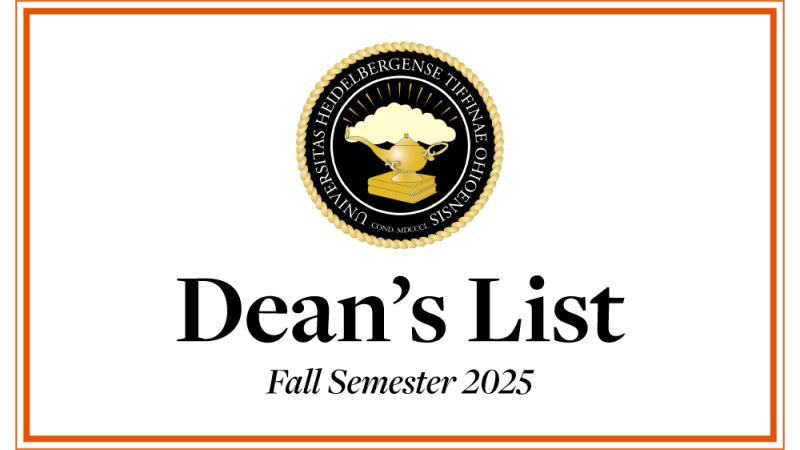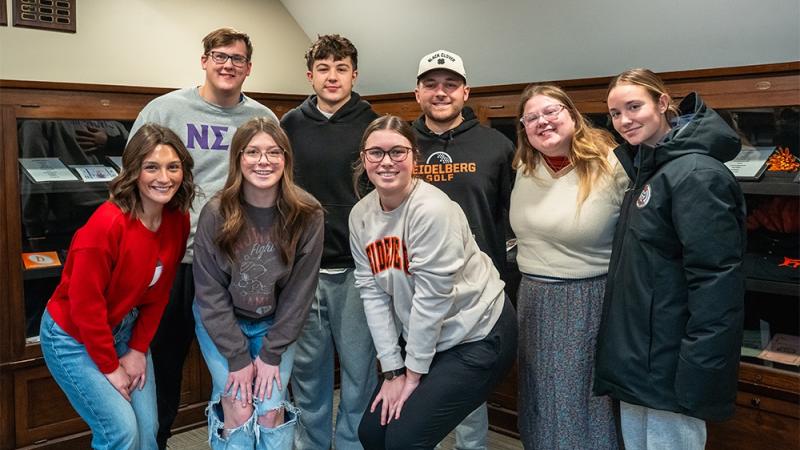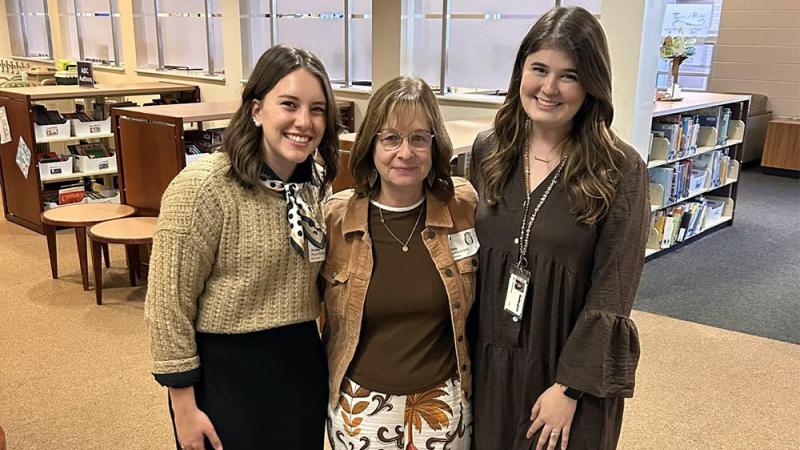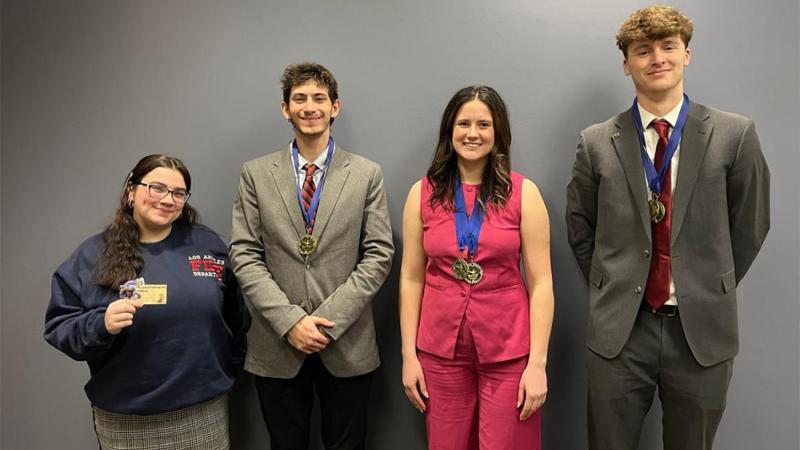Insight into anxiety: HYPE speaker offers tips for mental wellness
Since the pandemic, mental health issues have seen a 25% increase, especially anxiety and depression disorders. That spike has been even more dramatic among college students. With this in mind, journalist and author Andrea Petersen is uniquely qualified to share her personal experience on managing anxiety, which was her mission as the final HYPE Career Ready® keynote speaker of the academic year on Wednesday.
Andrea, a contributing writer for The Wall Street Journal, has experienced a 25-year struggle with anxiety and panic attacks, which she chronicled in her book, On Edge: A Journey Through Anxiety. She was a college sophomore when her first panic attack struck.
“I was gripped with overwhelming terror. I thought I was about to die,” Andrea shared. “I had no idea what it was.” She spent the next month marooned on her parents’ couch and soon embarked on a “medical odyssey” to figure out what was going on. Finally landing in the office of a psychiatrist, the word “anxiety” was finally uttered.
“Thankfully, there’s more awareness now,” Andrea said. She walked the Heidelberg audience through various definitions of anxiety, noting that the one that resonates most with her is “an anticipation of pain.”
“Anxiety becomes a problem when it impairs your life and interferes with work and your relationships,” she said. “But it can be helpful to understand that it is a normal human emotion.”
She polled the students about potential sources of anxiety: economic insecurity, coursework overload that seems overwhelming online, academic stress, information overload, fear for safety and constant social media presence. In her personal journey, stigma – and the sense of isolation that comes with it – also was a factor.
“When I was struggling with anxiety, I didn’t know anyone else who was on medication. Counseling centers weren’t very visible on campuses,” she said.
Genetics also plays a role. Andrea noted that a grandmother, an aunt, her dad and several cousins also experienced anxiety-related mental health issues. And trauma, she said, “raises all sorts of mental health issues.”
While mental health issues are on the rise, there is hope. Andrea found it in cognitive behavioral therapy, in which she forced herself to be exposed to the very things that she feared and avoided. “The point is to elicit anxiety symptoms and learn to cope with them … to teach myself that whatever catastrophic things I thought would happen didn’t. That really worked for me,” she said, noting that medications can also be helpful, although they don’t work for everyone and often cause side effects.
Trends in research and new treatment options are also cause for optimism – although accessibility is an area with lots of work yet to be done.
Andrea found ways to make her anxiety work for her instead of against her, especially with her high-stress job. It became a useful skill in her reporting, prompting her to double- and triple-check facts or chase after just one more interview. Essentially, it made her more tenacious.
For Andrea, finding a support system she could trust made a difference too. “Having at least one ally you can be totally authentic with can be really helpful,” she said.
She offered a series of actions college students can take if they find themselves gripped with anxiety:
• Don’t be afraid to seek treatment
• Get good sleep, proper nutrition and exercise
• Do scary things that will make you more brave
• Create moments of joy that lead to positive emotions and resilience
• Check your thinking errors
• Practice deep breathing
• Ground yourself in the present
• Take a brisk walk in nature with a friend
“I have tried to lean into my anxiety. I learned that if I didn’t, it was going to get worse down the line,” she said.
Finally, Andrea encouraged students whose friends are experiencing anxiety to understand that mental health issues “are not moral failings.” Instead, she recommends conveying moral support and simply asking what the person needs.
Although her mental health issues came with intense challenges and debilitating days, they forced her to be vulnerable and ask for help, thus deepened her relationships with her friends and family.
“It really made me live a more authentic life. It’s made life all the richer,” she said.




